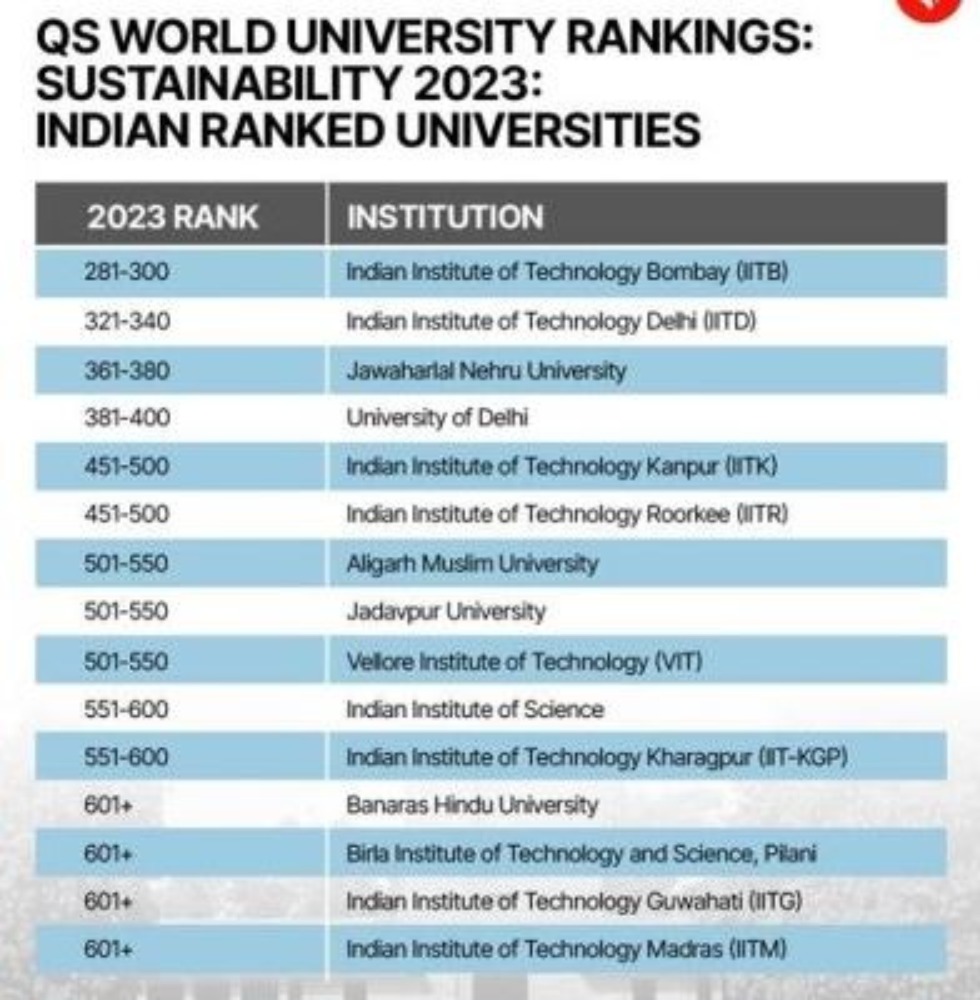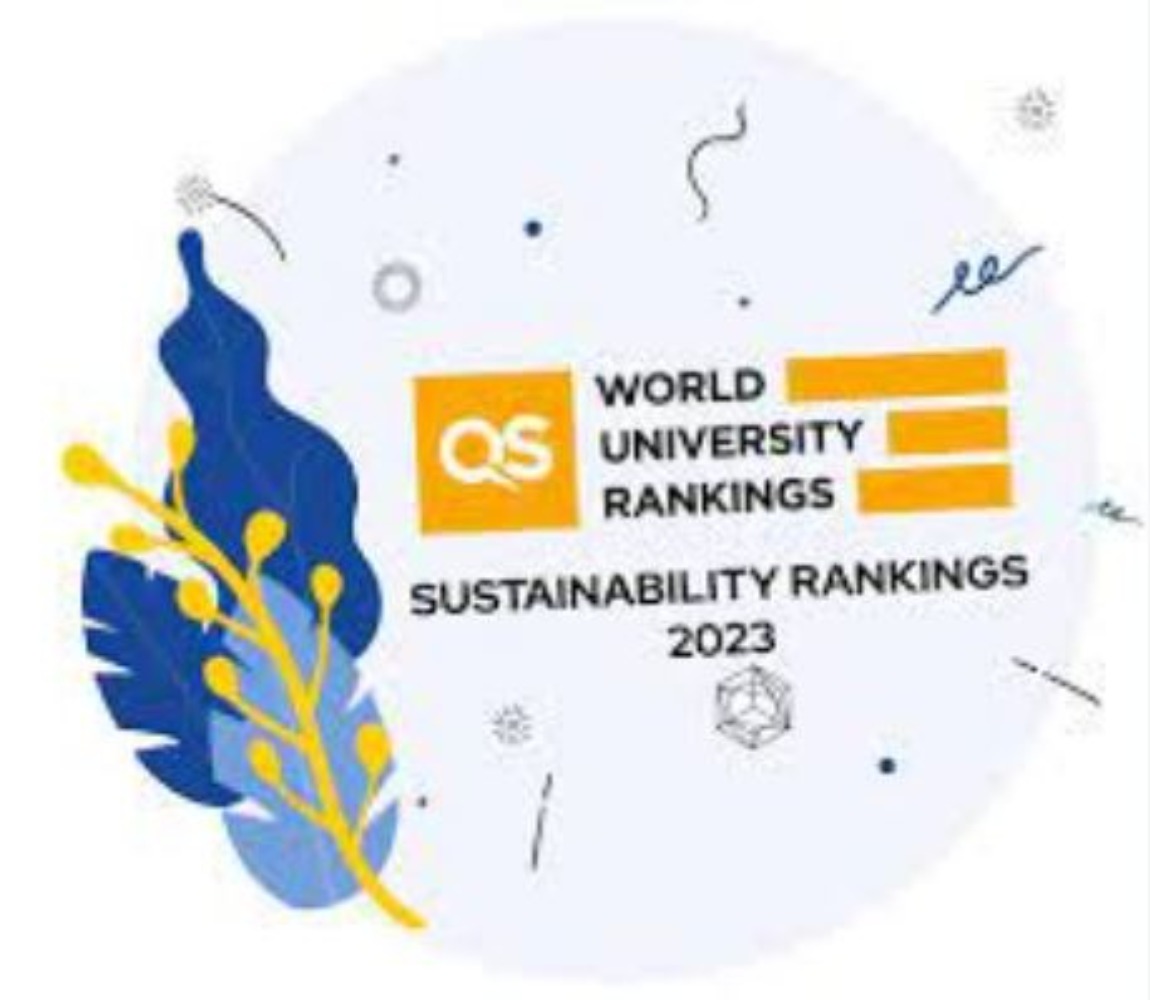Featuring 700 universities, the rankings uses a methodology comprised of indicators designed to measure an institution’s ability to tackle the world’s greatest environmental, social and governance challenges.

Pic: Social Media
The QS World University Rankings: Sustainability 2024, released on Tuesday, recognized Delhi University (DU) as the leading sustainable institute in India, securing the 220th spot globally. To subscribe please click tau.id/2iy6f and access our live channel.
DON’T MISS: Indian Oil inaugurates battery swapping station
The University of Toronto tops the list, followed by the University of California, Berkeley (UCB), and The University of Manchester in second and third positions, respectively.
Notably, no Indian university made it to the top 200 ranks. Following DU, IIT Bombay is globally ranked 303, succeeded by IIT Madras (344), IIT Kharagpur (349), IIT Roorkee (387), and IIT Delhi (426).
Apart from DU and the IITs, Birla Institute of Technology and Science, Pilani (BITS) secures the 7th position in India (444 globally), followed by Vellore Institute of Technology (VIT) at 8th (449 globally), Anna University at 9th (496 globally), and the Indian Institute of Science at the 10th spot (505 globally).
The Delhi University received recognition for providing “world-class education in environmental and climate-related subjects,” securing the 16th spot in QS’ Environmental Education indicator. However, the next-highest-ranked university drops outside the top 100 in Asia.
Despite India’s absence in the top global sustainability rankings, it has performed well in indicators related to environmental impact. Four Indian universities are among the world’s top 100 in the Environmental Sustainability indicator, with VIT leading nationally (49 globally).
India leads the world in environmental education, but lags in environmental research. Domestically, the Indian Institutes of Technology (IIT) dominate this indicator, with IIT Delhi leading at 236th, especially in research on Sustainable Cities and Communities (SDG 11).
Meanwhile, Australia has the highest average score worldwide for the QS Social Impact category and Health and Wellbeing category among countries with ten or more ranked universities. All three of the top universities in the world for the Impact of Education are from Australia.




